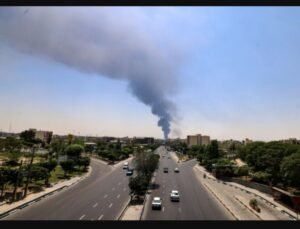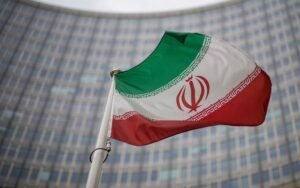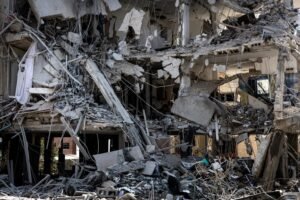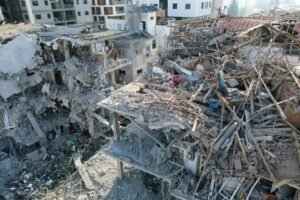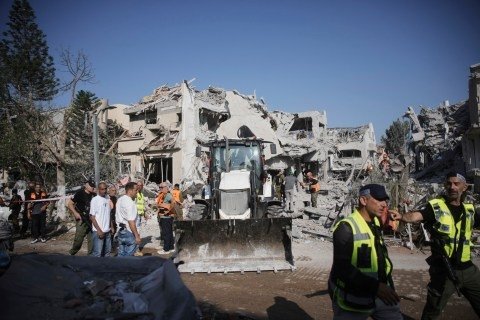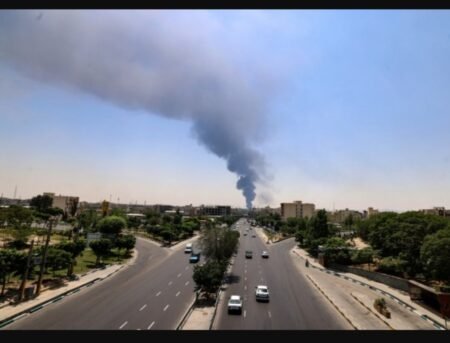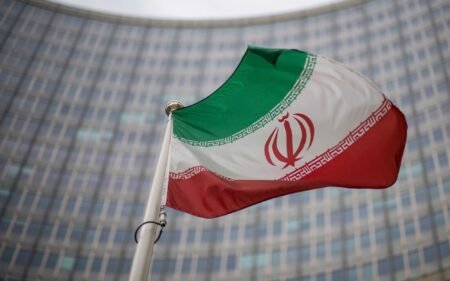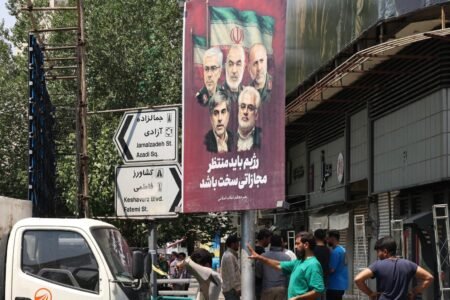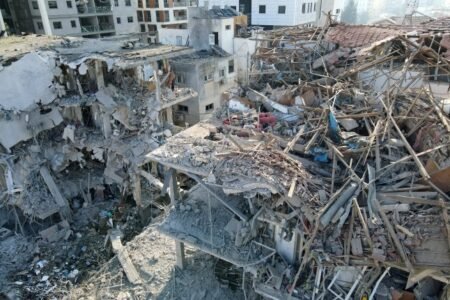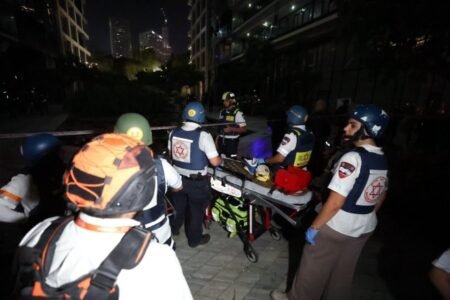By Dayo Ade Olusola | M10News.com
Category: International Affairs | Date: June 14, 2025
Tensions in the Middle East have escalated dramatically amid intensifying cross-border strikes between Israel and Iran, sparking growing fears of a broader regional war that could soon draw in the United States and other Gulf nations.
The conflict, which has rapidly intensified over the past 48 hours, has already resulted in mass casualties and significant damage in both countries.

Explosions have been reported in major cities including Jerusalem, Tel Aviv, Tehran, and Zanjan, following a series of retaliatory missile and drone strikes by both sides.
According to Iranian state media, more than 78 people have been killed in Iran, including four high-ranking security officials. At least 320 others, most of them civilians, were injured in the strikes.

In Israel, three people have been confirmed dead, and dozens more have been wounded in Iranian attacks, according to Israeli emergency services.
Images from both countries show thick plumes of black smoke rising from military installations and residential neighbourhoods, evidence of the widespread destruction inflicted during what experts are warning could be the opening stages of a prolonged military campaign.
US Bases in the Crosshairs
As the confrontation deepens, concerns are mounting that American military installations across the region could become direct targets.
Iran’s state-run Fars News Agency quoted senior unnamed officials warning that the conflict is likely to expand in scope and geography.
“This confrontation will not end with last night’s limited actions,” one official was quoted as saying. “Iran’s strikes will continue—and they will be painful and regrettable for the aggressors.”

The United States has so far not confirmed any direct involvement in the fighting, but political rhetoric is heating up.
President Donald Trump has publicly praised Israel’s recent strikes, a stance that analysts say could further inflame the situation.
Shahram Akbarzadeh, director of the Middle East Studies Forum at Australia’s Alfred Deakin Institute, told Al Jazeera that the conflict is unlikely to remain contained.
“There’s every chance this spreads across the region,” he said. “Israel is likely banking on the assumption that if the conflict escalates, the U.S. will be compelled to intervene due to its long-standing security commitments to Israel.”
Iranian Missile Barrage Rattles Israel
Late Friday and into early Saturday, Iran launched an estimated 200 missiles toward Israeli territory.
Footage aired on Iranian state television showed civilians celebrating the attacks, distributing sweets in the streets as videos of explosions in Israel played repeatedly.
Israeli defence forces reported intercepting numerous drones over the Dead Sea region overnight. However, several missiles reached populated areas, causing casualties and damage.
In Tel Aviv, a projectile struck a residential building, injuring seven people. One woman later died from her injuries at Beilinson Hospital.

In a separate strike on the city of Rishon Lezion, two more civilians were killed and at least 19 others were wounded, according to Magen David Adom, Israel’s national emergency medical service.
Civilian Toll Rises in Iran
Shortly after midnight local time on Saturday, Israeli warplanes launched a major assault on Tehran, targeting what Israel described as key military and nuclear sites.
Iranian officials reported that around 60 people were killed in one of the deadliest attacks of the conflict so far—an airstrike on a housing complex in Tehran. Among the victims were at least 20 children, according to Iranian state television.
Israel’s military said it had targeted multiple sites linked to Iran’s nuclear program, including the main uranium enrichment facility in Natanz and another facility in Fordow, located about 60 miles southeast of the capital.
Additional strikes were reported in Isfahan, where a nuclear research centre was hit, as well as at multiple radar and air defence installations in western Iran.
Calls for De-escalation Go Unheeded
Despite mounting international pressure and calls from global leaders for immediate de-escalation, neither Iran nor Israel appears willing to back down.
Analysts say the tit-for-tat nature of the strikes, combined with the strategic significance of the targets, suggests both sides are settling in for an extended conflict.
With the civilian death toll rising and rhetoric on all sides hardening, the prospect of regional war—potentially involving U.S. and allied forces—looms ever larger.
Published by Dayo Ade Olusola for M10News.com
Category: International Affairs
Contact: info@m10news.com

